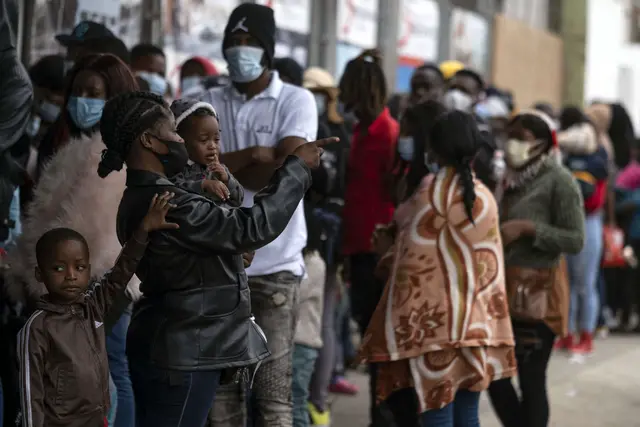A senior U.S. official pledged Thursday that the U.S. would help Haiti find stability after years of political discord and amid a continuing migration crisis among the country's residents, the Associated Press reported. The official, who spoke to reporters on condition of anonymity, said that the U.S. would back a "broad-based dialogue" to help Haiti find political balance and prevent future recurrences of its past instability.
Years of turmoil in Haiti's government places even higher importance on next year's upcoming presidential and legislative elections, the AP reported. The senior official said that the U.S wants to aid Haiti in establishing voting conditions that allow the country to hold free, fair and safe elections.
Between September 19 and October 3, the U.S. sent more than 7,000 Haitian migrants back to Haiti through 65 expulsion flights, according to the U.S. Department of Homeland Security. The official said that the U.S. government is looking to begin conversations on a regional level so that it can collaborate with countries also affected by the migration movements from Haiti.
Haiti's future overall, he said, would have to be decided by Haitians themselves, the AP reported.
"There is going to be no political solution that is going to be prescribed by Washington," the official said.
The number of U.S.-bound Haitian migrants temporarily stuck in northern Colombia has risen to about 20,000, a senior U.S. official said Thursday, echoing reports from a local human rights organization.
"It's forming a human bottleneck," said the official, who briefed reporters on condition he not be named.
Earlier this week, Colombia's Office for the Defense of the People said 15,000 to 20,000 migrants—overwhelmingly Haitians, were stuck in the Colombian city of Necocli awaiting ferries that would take them across the Gulf of Uraba to a point where they can start the perilous jungle trek across the roadless Darien Gap into Panama.
Colombian and Panamanian officials have tried to limit the number of migrants to 500 a day on the ferries, but more than that have been arriving daily, on average.
Yet their chances of entering the U.S. are limited as well, even if they manage to make their way across Central America and Mexico, where thousands of other Haitians are now stuck, many waiting months for some sort of permission to live and work.
The U.S. expulsions to a devastated nation many left years ago have received sharp criticism and prompted the resignation of Daniel Foote, the Biden administration's special envoy to Haiti.
Foote, who has called the large-scale deportations "inhumane," said in a U.S. congressional briefing on Thursday that use of expulsions "in the short term is not going to make Haiti more stable. In fact, it's going to make it worse," he said.
The official did not elaborate on what the conversations with other countries affected by Haitian migration might entail. Both the Trump and Biden administrations have been talking with governments across the region on ways to discourage migration—particularly after last month's crises in Del Rio, Texas, where thousands of Haitians massed beneath a bridge before the encampment was broken up.
Mexico has been cooperating with the U.S. by trying to contain migrants in the southern part of the country and expelling migrants from other countries to Guatemala. On Wednesday it flew 129 Haitian migrants from the southern Mexican city of Tapachula to Port-au-Prince, Haiti's capital.
The administration has been slammed from the right for not taking a tougher stand at the border and from the other side for repatriating Haitians to a homeland that is now facing a deep economic crisis, a spike in gang-related violence and great political instability following the July 7 assassination of President Jovenel Moïse.
Foote, the former U.S. special envoy to Haiti, noted that U.S. diplomats cannot leave their compound in Port-au-Prince without an armed guard.
"The gangs run Port-au-Prince. It is in their control," he said. "They are better equipped and better armed than the police."
The U.S. senior administration official also acknowledged Haiti's security situation: "It is often known that gangs have links to political and private sector actors."
The hemisphere's poorest country also is trying to recover from a magnitude 7.2 earthquake in mid-August that killed more than 2,200 people while destroying or damaging tens of thousands of homes.
(NEWSWEEK)
 简体中文
简体中文





